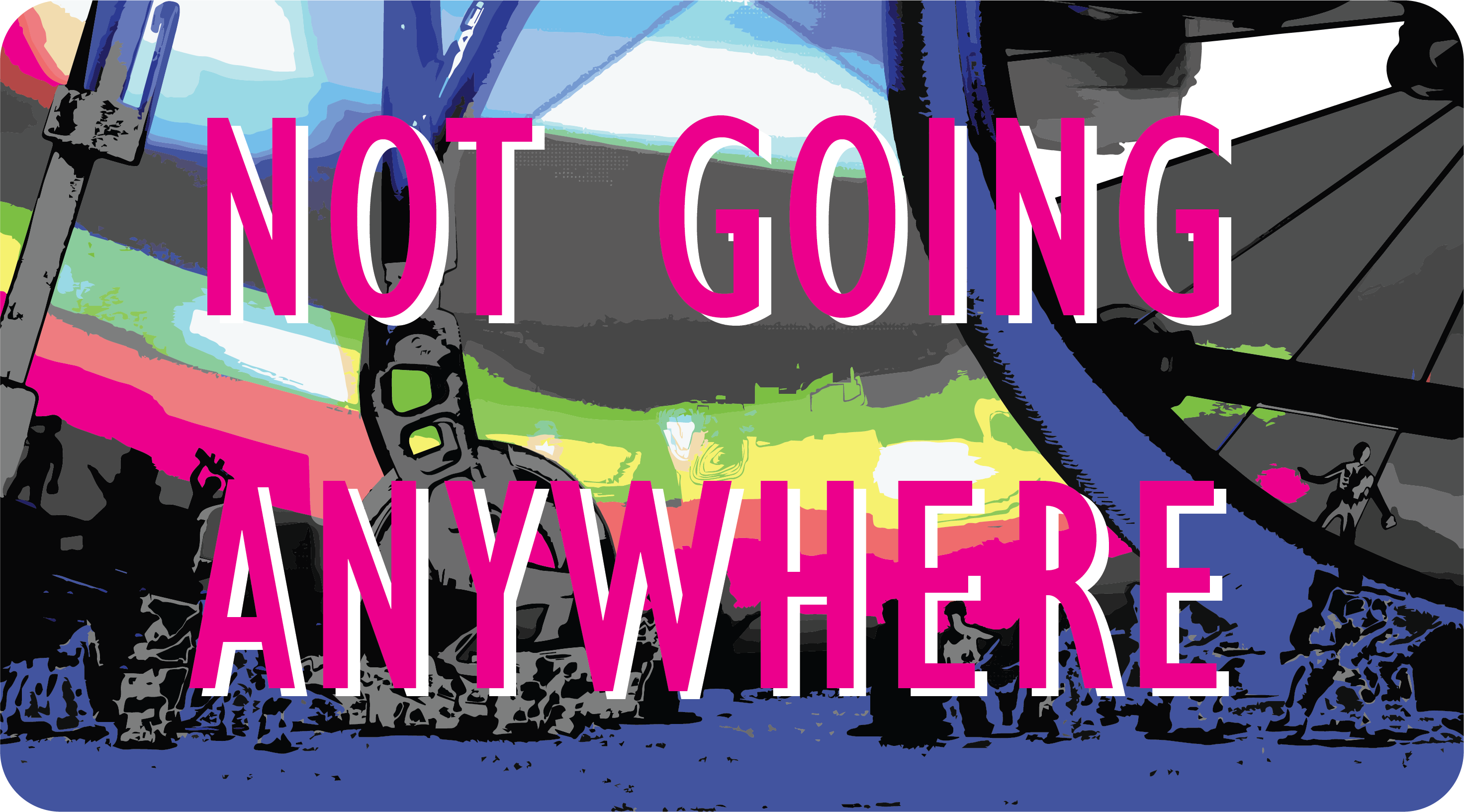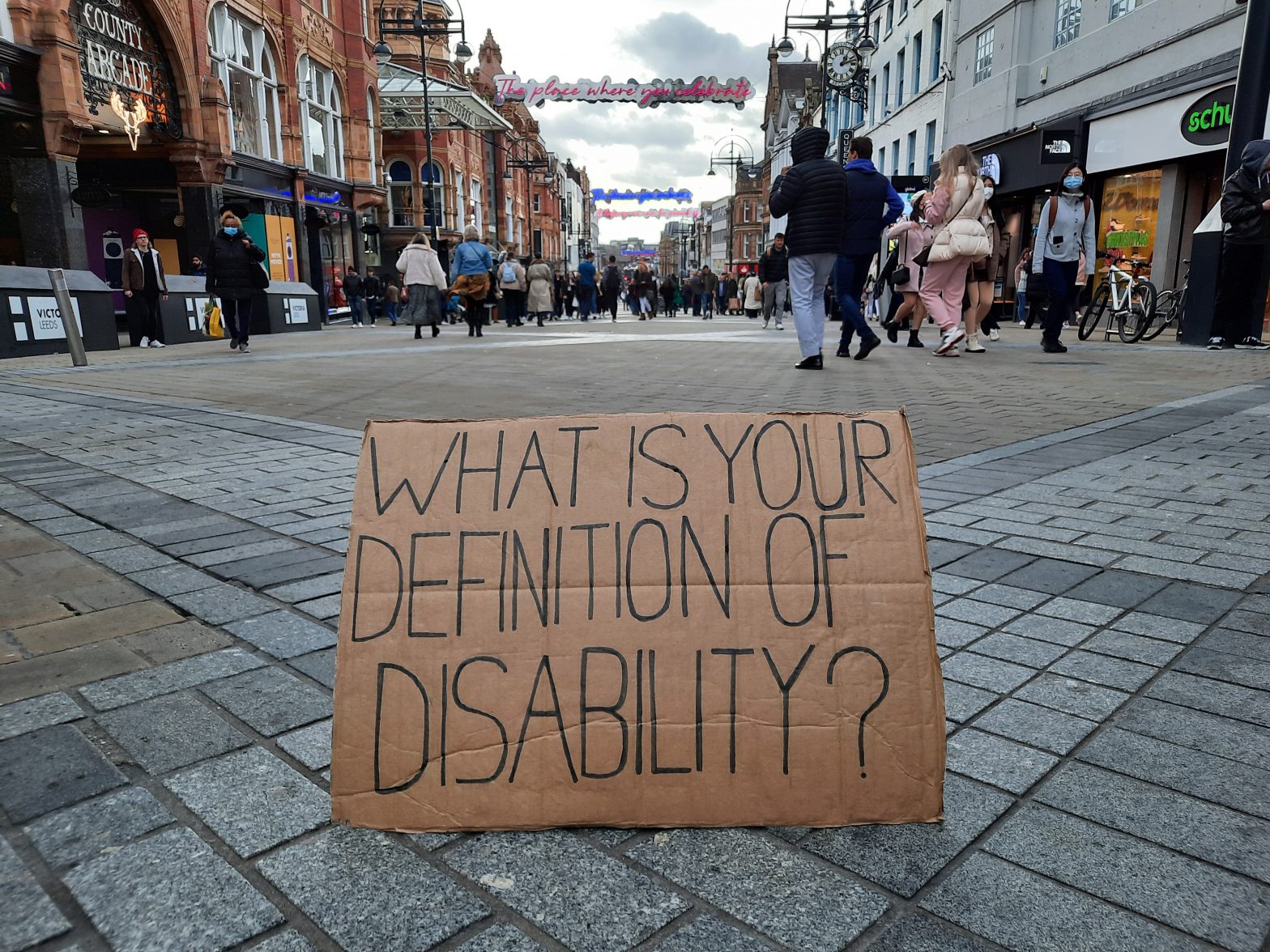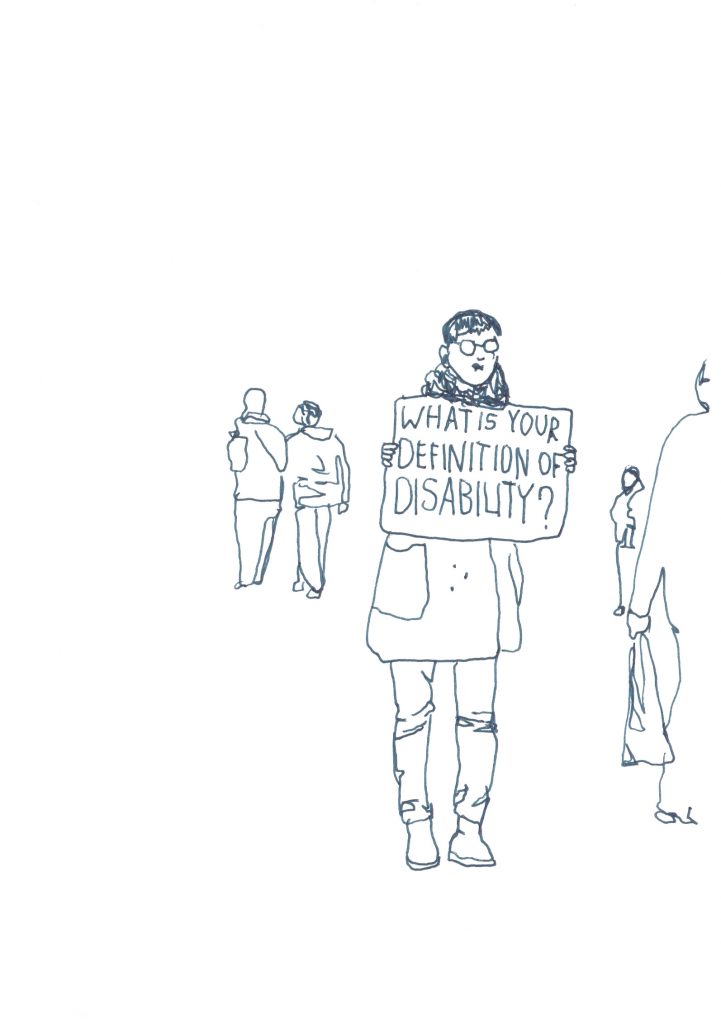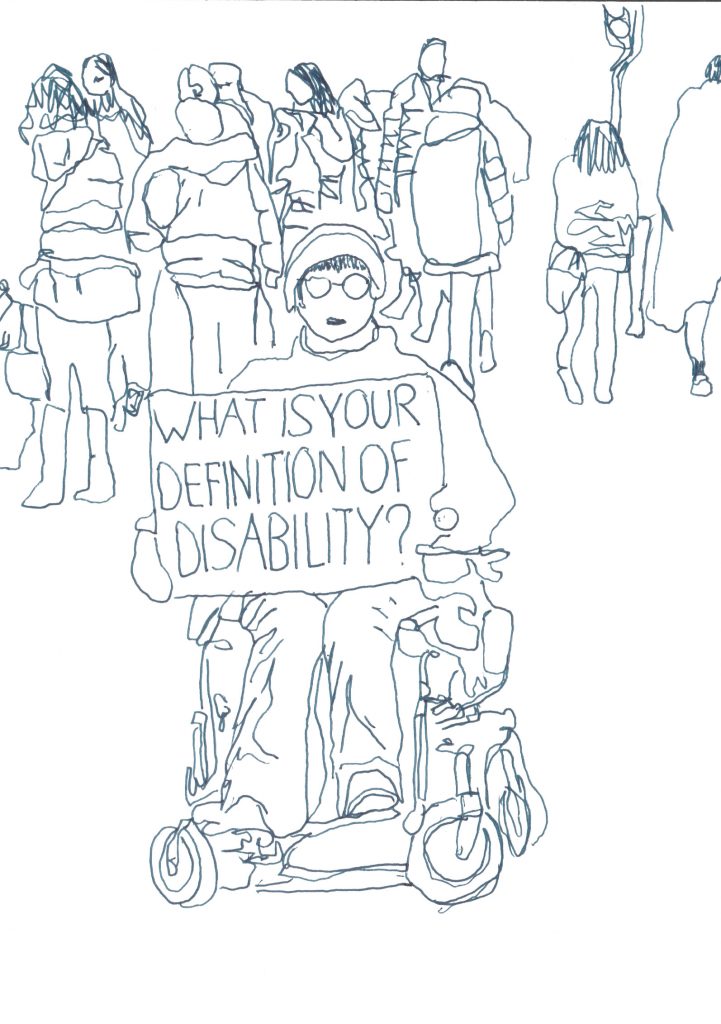‘What is your definition of disability? – (Sign, Zine, Soundscape, Act)
During November 2021 Vickie Orton and Nicole Murmann stood, and sat, on a busy shopping street in Leeds holding a large cardboard sign written in black capitals asking “What is your definition of disability?”
Vickie is older and a wheelchair user and Nicole has invisible disabilities. They recorded respondents replies to create a soundscape which reflects the reality of living with a disability and the social model of disability. They also created a zine using transcripts of the comments they received.
Listen to the soundscape here.
Or read the transcription.
WHAT IS YOUR DEFINITION OF DISABILITY?
Person 1:
-I mean… I don’t know if you want the perception of the average person on the street who is not already an expert, I might not be the right person to talk about this. But it is really interesting because I walked pass and I saw you holding the sign and because I am autistic and I have AVHD, my perception of stuff can be a bit slow… wait a minute that was a sign saying: What is your definition of disability? I have got to come back and interact with this… (the person is laughing).
– I did a PhD in Disability studies in University in Leeds. I am very sort of steeped in the traditional social model of disability, so of course my definition of disability is a form of oppression applied by Society on people who have differences from a norm which is creating in industrial Capitalism. People obviously use the word disability in a kind of sloppy ways. People often don’t understand the difference between disability and impairments, often people say their disability is the condition that they have for whatever. I mean that’s a usage that I don’t know people in the disabled people movement use the social model.
– You know it’s so prevalent in society, it seems however many times you explain the social model to people. People keep using the word disability and that saying that I have disabilities whatever which is a really strange thing that I never get my head around why…
The social model usage which like you know has revolutionized my thinking when I first encountered it, the same for a lot of other disabled people I know… It’s still doesn’t really seem to have filtered to the general public understanding of stuff…
– I am now, doing another part of research as a post doctoral research about disabled people’s involvement in cooperative businesses.
Person 2:
-Learning disabilities, but I don’t see it has a disability… I don’t see disability I see ability, what they can do… there’s lots of things that they can do.
Person 3:
– What is your definition of disability? What people see as what other people can’t do, but I see what they can do more than what they can’t do, if you know what I mean…yeah.
Person 4:
– But I don’t see disabilities.
Person 5:
My definition of disability is someone’s misinterpretation of what someone is capable of doing. My daughter has epilepsy, because it’s not something visible, there is an assumption made when she has an epileptic seizure and I think sometimes we classify people’s abilities by our own misunderstanding.
Person 6:
I guess there is a norm what most people are able to do…most people…and I suppose… and if you fall a bit short of being able to do…some of those things…then I suppose that you are disabled. There are a lot of things that you have to do to get around in the world. And it might be difficult to do some of these things and I guess you are disabled.
Person 7:
– Mmm somebody that struggle with day to day life and impaired in normal things they do…maybe I shouldn’t use the word normal but yeah…
Person 8:
– My first reaction what disability is anything that isn’t sort of normal
Person 9:
– I suppose people who have something impacting in their lives. They see life as more difficult.
Person 10:
I think that disability means that you cannot do something, you are not able to do something. I also think that even if somebody is disabled, they can make a huge impact. Maybe you know Joni Eareckson, she is from America, she had written a book: “the story of my life”, something like that…She had a spinal injury because she wanted to jump headfirst into a hole, when she was a teenager, she was paralysed. And then she bought a lot of books and inspiring her and all that… I cannot say that it is not a trial, it is not a challenge… The good work is that there are people like you, they are making an impact.
Person 11:
What is your definition of disability? Mmm my definition of disability is wide ranged because it can be physical, it can be invisible and it can affect people in completely different ways in terms of how you are treat, how you feeling in yourself, in confidence and ability to enjoy life… in terms of how the norms of society see people with disabilities and it is. And that can be very close or it can be a very unexperienced.
Person 12:
My definition of disability is someone… it can be physical or mentally like depression is a disability, I believe and I also think people like handicap people… like wheelchairs…stuff like that is a disability.
Person 13:
Disability is often something that can’t be seen… people with mental illness are so ashamed of it… they don’t come out and say it… and yeah that is a disability because it’s affecting your life, and because you cannot see it. It is covered up and I think that’s awful. I have a grandson, who is autistic, with Asperger syndrome and the people would rather avoid talking to him then trying to understand him and just be one with him. He is so limited but I love him but I love him to bits. Disabilities are not all the same. They use to say my grandson was special needs and I said no…take the needs off, he is special… no one is perfect. Nothing is perfect, we all got some little things… And I just think we should live and let live and appreciate people who need help and giving that help they need.
This project explores the links and differences between what is read as a visible and invisible disability, how that person is read by those viewing the sign, and the trust and safe space between you and me, the bond and boundaries created in relationships and conversations.
Vickie Orton and Nicole Murmann, 2021.



